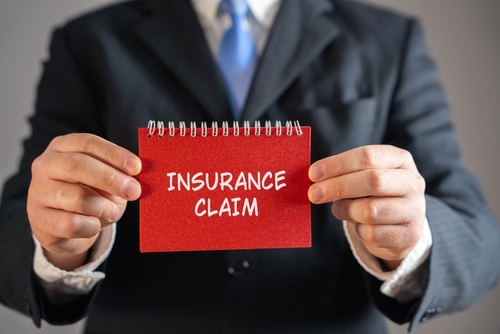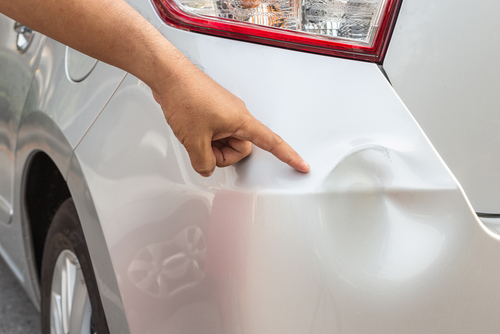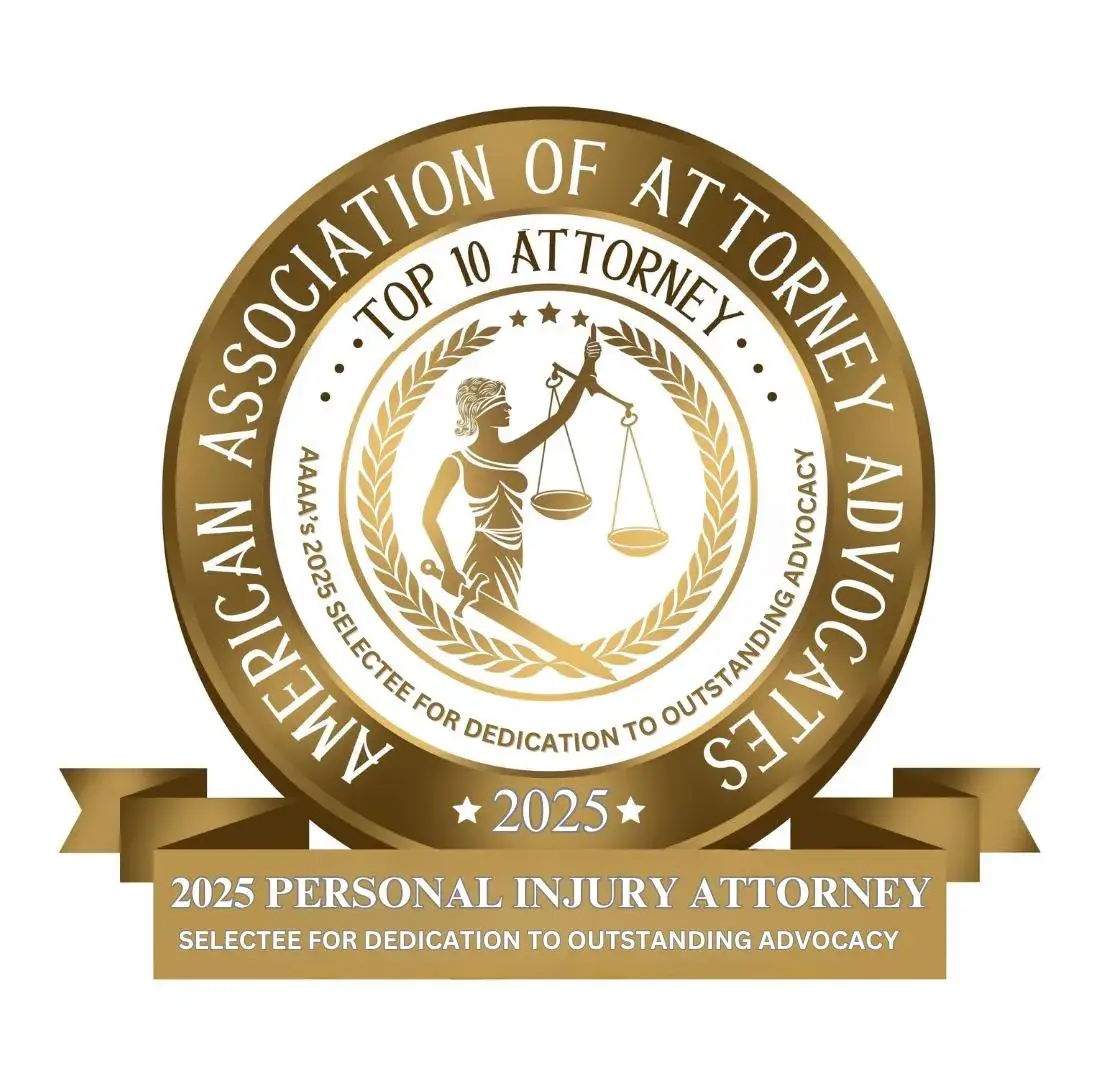
How Long You Have to File a Car Accident Claim in Bergen County
In New Jersey, you generally have two years from the date of a car accident to file a personal injury lawsuit. For property damage only, the deadline is six years. However, several shorter, important deadlines exist that arrive much sooner, some in as little as 90 days.
These timelines are strict legal cutoffs. Missing one, especially the 90-day notice requirement for claims against government entities, permanently prevents you from recovering any compensation for your injuries. The process is further complicated by separate deadlines set by your own insurance company, which are in the fine print of your policy. A Fort Lee car accident lawyer can track these deadlines and protect your right to compensation.
If you have a question about the specific deadlines that apply to your situation, call us. We will clarify the timeline for you in a straightforward conversation. Contact Maggiano, DiGirolamo & Lizzi, P.C. for a free consultation at (201) 585-9111.
Key Takeaways for Bergen County Car Accident Deadlines
- The standard deadline for injury claims is two years. New Jersey law requires you to file a lawsuit within two years of the accident date, but it is better to act much sooner while evidence is still available and memories are clear.
- Claims against the government have a 90-day notice rule. If a public vehicle or poorly maintained road caused your accident, you must file a formal Notice of Tort Claim within 90 days, or you will lose your right to sue.
- You must notify your own insurer almost immediately. Most policies require you to report an accident within a few days to access your Personal Injury Protection (PIP) benefits for medical bills, regardless of who was at fault.
The Main Ticking Clock: New Jersey’s Two-Year Statute of Limitations
As mentioned above, personal injury claims face a strict filing deadline called the statute of limitations, after which you lose your legal right to recover damages entirely.
Two years feels like a long time, but it passes quickly when you are focused on recovery. During this period, evidence disappears, witnesses’ memories fade, and the insurance company for the at-fault party may conduct its own investigation. Waiting until the last minute weakens your ability to build a strong case for the compensation you need.
What Is the Two-Year Rule?
This law applies to claims for medical bills, lost wages, and pain and suffering resulting from physical injuries. Think of it like a store’s return policy. Once the date passes, you are no longer able to bring the item back, no matter how good your reason is. The law works similarly.
When Does the Two-Year Clock Actually Start?
It typically starts on the day of the accident. In some rare cases, however, if an injury is not immediately apparent (like a slow-developing back problem), the clock might start when the injury is discovered, or reasonably should have been discovered. This is a legal concept known as the “Discovery Rule.” Most Powerful Tools for Your Car Accident Claim include strong medical evidence and timely legal guidance to protect your rights.
The 90-Day Sprint: What If a Government Vehicle or Poor Road Condition Caused Your Accident?

If your accident involved a public entity, such as a town-owned vehicle in Englewood, a Bergen County bus, a pothole on a state-maintained road like Route 4, or even a police car, you have only 90 days to formally notify the correct government agency of your intent to file a claim.
This is a preliminary step called a Notice of Tort Claim. Missing this 90-day window almost always means losing your right to sue, no matter how severe your injuries are.
What Qualifies as a “Public Entity”?
A public entity includes:
- State, county, or municipal governments (e.g., Fort Lee Borough, Bergen County).
- Government employees acting in their official capacity (e.g., a public works driver).
- Public agencies like NJ Transit.
What Does the New Jersey Tort Claims Act Require?
The New Jersey Tort Claims Act requires you to file a formal written notice that provides specific details about the accident. This requirement exists because the government needs early notice to investigate claims while evidence is fresh and to understand its potential financial liabilities.
Does Filing the Notice of Claim Mean I’ve Filed a Lawsuit?
It does not. The Notice of Claim simply preserves your right to sue later. You still must file the actual lawsuit within the original two-year timeframe. In diverse communities like Teaneck or Hackensack, language barriers sometimes make understanding these difficult government forms difficult. Hire an Attorney After a Car Accident to handle these filings and make sure every deadline is met. Our firm manages this entire process, ensuring the notice is filed correctly and on time, regardless of the language you speak at home.
Are There Different Rules for Children or Those Unable to Act for Themselves?
What Happens if the Injured Person Is a Minor?
The law recognizes that a child is unable to legally make decisions about a lawsuit. For this reason, the statute of limitations is “tolled,” or paused, for a minor. The two-year clock does not start running until the child’s 18th birthday. This means they generally have until their 20th birthday to file a lawsuit.
However, waiting is not always the best strategy. A parent or guardian may, and usually should, file a claim on the child’s behalf much sooner to cover immediate medical expenses and preserve evidence.
What About Someone Who Is Mentally Incapacitated?
A similar tolling rule applies if a person is mentally incapable of understanding their rights or managing their affairs due to the accident, such as from a severe traumatic brain injury. The two-year clock begins only after they regain their mental capacity. This ensures a high legal standard and requires significant medical documentation. Types of Car Accidents can range from rear-end collisions to multi-vehicle crashes, each requiring careful legal review.
The Deadlines You Won’t Find in a Lawbook: Notifying Your Insurance Company
Beyond the legal deadlines for filing a lawsuit, there are contractual deadlines set by your own insurance policy.
Most insurance policies require you to report an accident “promptly” or “within a reasonable time.” While not a specific number of days, this is frequently interpreted by insurance carriers as within 24 to 72 hours. Delaying this notification gives them a reason to question the claim or, in some cases, deny coverage for your medical bills.
Why Do I Have to Report the Accident to My Own Insurance if Someone Else Was at Fault?
In New Jersey, your own auto insurance is the primary source for paying your initial medical bills, regardless of who caused the crash. This is what “no-fault” means. You must open a claim with them to access these benefits. How Much Is a Car Accident Settlement Worth depends on factors like medical costs, lost wages, and pain and suffering.
What Other Insurance Deadlines Should I Know About?
- Requirement to Cooperate: Your policy is a contract that requires you to cooperate with your insurer’s investigation. This includes providing documents and potentially a recorded statement.
- Filing a Police Report: New Jersey law requires you to file a report within 10 days for any accident involving injury, death, or over $500 in property damage. This report is commonly the first piece of evidence an insurance company will ask for.
What Should I Say and Not Say When I Report the Accident?
Here is some simple guidance for when you call your insurance company:
- Do: State the basic facts: who, what, when, and where the accident happened.
- Don’t: Speculate on fault, admit any blame, or downplay your injuries. You may not know the full extent of your injuries yet. Simply state that you are getting medical attention.
What If I Think I’ve Already Missed a Deadline?
Do not make assumptions. The law around these timelines can sometimes have exceptions.
As we mentioned above, the Discovery Rule may apply if your injury was not and could not have been reasonably discovered right away. Another rare legal doctrine, known as Equitable Tolling, pauses a deadline in extraordinary circumstances, such as when a person was actively misled by the other party.
The only way to know for sure where you stand is to discuss the specific details of your situation with a law firm that handles car accident cases. We will review the facts and provide a clear assessment of your options, if any still exist.
How Our Firm Helps You Meet Every Deadline
From day one, we take over the timeline management. Our practice focuses on personal injury claims, and we have years of experience with the processes in Bergen County.
Our process includes:
- Immediate Investigation: We promptly file all necessary notices, including the 90-day Notice of Tort Claim if a government entity is involved.
- Handling All Communications: We become the point of contact for all insurance companies. This protects you from saying something that might be used to argue you were at fault under New Jersey’s comparative negligence rules.
- Managing Paperwork: We gather police reports, medical records, and other documentation needed to build your claim, ensuring everything is submitted correctly and on time.
- Focusing on the Final Deadline: We calendar the two-year statute of limitations and build a legal strategy designed to either reach a fair settlement or file a lawsuit well before that deadline expires. Your focus should be on your health; our focus is on protecting your rights.
Frequently Asked Questions About Filing a Car Accident Claim in Bergen County
I was a passenger in the car. Do the same deadlines apply to me?
Yes, passengers are subject to the same two-year statute of limitations for injuries and the 90-day notice period for claims against public entities.
The other driver’s insurance company offered me a quick settlement. Should I take it?
Accepting a quick offer is usually a mistake. It may not cover your future medical needs, and once you accept, you lose the right to ask for more compensation. We advise understanding the full extent of your injuries before settling.
My accident happened on the border of Fort Lee and Englewood Cliffs. Does it matter where I file my claim?
The lawsuit is typically filed in the county where the accident occurred or where the defendant resides. We handle cases throughout Bergen County and will ensure your claim is filed in the correct courthouse.
I’m part of the Korean community in Palisades Park and my English isn't perfect. Can you still help me?
Absolutely. Our team has resources to ensure we communicate with you clearly. We want to make sure you understand every step of the process in the language you are most comfortable with.
Do I have to pay for a lawyer upfront to handle my claim?
No. We handle personal injury cases on a contingency fee basis. This means we only get paid if we successfully recover compensation for you.
Take Control of the Clock by Taking the First Step

The deadlines after a car accident in Bergen County are unforgiving, but knowing them is the first step toward protecting yourself. The sooner we begin gathering evidence and managing the timeline, the stronger your case will be. Fault determined in a car accident plays a major role in how much compensation you can recover, so quick action is essential.
We regularly help families in Fort Lee, Hackensack, Teaneck, and the surrounding communities. We understand the challenges people here face after a serious crash.
If you’re ready to discuss your situation, we’re here to listen. Call Maggiano, DiGirolamo & Lizzi, P.C. today at (201) 585-9111.



















